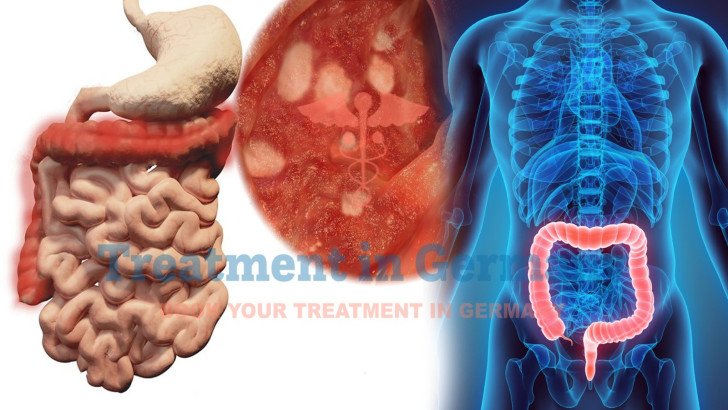
Ulcerative colitis is a form of IBD that causes inflammation in your colon. People experience symptom flare-ups and also periods without symptoms.
Ulcerative Colitis Treatment in Germany
Ulcerative colitis is a type of IBD that millions of global citizens live with and experience various degrees of discomfort. Thus, for those looking for what medical treatment options Germany has to offer for advanced ulcerative colitis, the good news is that there is advanced technology and treatment available for this complicated gastrointestinal disease.
Understanding Ulcerative Colitis
The symptoms of ulcerative colitis include inflammation of the colon and rectum, which can cause symptoms like:
This illness is a member of the broad category of inflammatory bowel disorders, of which Crohn's disease is another kind. Though the cause is still unidentified, the disease has been attributed to genetic factors, failure of the immune system, and environmental factors.
Germany’s Expertise in IBD Treatment
Germany has created a niche for itself as the global market for digestive health and IBD solutions. The country's healthcare system boasts:
Speaking of the patient's needs and wants, it is essential to note that the patient wants convenient access to other treatments and the use of more advanced technologies.
An integrated model of patients’ treatment
Almost all hospitals and clinics in Germany have IBD centers to make sure patients get all that they need, from diagnosis to treatment to end-of-life care.
Advanced Treatment Options
Advanced ulcerative colitis treatment in Germany encompasses a range of innovative therapies:
Biological Therapies
The anti-inflammatory action of biologic drugs is initiated by modulating the proteins in the immune system. Examples include:
It emerges that these medications produce a high level of effectiveness in managing the remission of UC.
Stem Cell Therapy
Certain clinics in Germany are now considering the possibility of introducing mesenchymal stem cells for two purposes: to restore the injured intestinal tissue and to regulate the immune system’s reaction in the course of IBD.
Fecal Microbiota Transplantation (FMT)
FMT is the selective release of stool from a healthy donor to the patient. Though the therapy is still investigational in ulcerative colitis, some of the German centers use it in clinical trials only.
Diagnostic Procedures
Diagnosis is highly sensitive and must be done accurately to get the best possible result. German hospitals employ advanced diagnostic tools, including:
Biochemical and molecular laboratory investigations for biomolecules and genes These technologies enable evaluation of the disease’s spread and intensity to inform the management process.
Comprehensive Support in Germany
Full care for comprehensive ulcerative colitis patients in Germany therefore includes more than medicinal care. Patients receive support in:
Most clinics provide general IBD nurses who offer continuous teaching assistance to the patients and their families.
Research and Clinical Trials
Germany is at the forefront of IBD research, with numerous ongoing clinical trials exploring:
In these trials, patients may get a chance to take treatments not yet available to the public since they are trials.
🌍Why Patients Worldwide Prefer Our Medical Services in Germany – Key Benefits Explained:
Kindly complete the form below, and our dedicated team will reach out to you promptly. We look forward to connecting with you soon!
Trierer Straße, 56072 Koblenz, Germany

.webp)
 (1).webp)

.webp)
 (1).webp)


.webp)
 (1).webp)

.webp)
 (1).webp)
